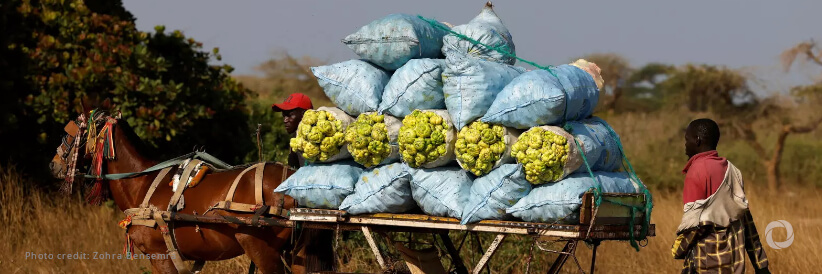The International Fund for Agricultural Development (IFAD) and the Bank Al Maghrib have partnered for the second time to increase financing for food security in rural areas around the world.
IFAD issued its 11th sustainable bond, as a private placement, under its Sustainable Development Finance Framework to the Central Bank of Morocco. This issuance of a US$150 million bond with a tenor of 10 years contributes to the Fund’s 2025 funding plan. IFAD had started funding for 2025 already in July 2024, through its first partnership with the Bank Al Maghrib, with a private placement of EUR100 million.
“Having the Bank Al Maghrib as a repeat investor makes us particularly proud. It shows the value of long-term relationships for IFAD’s global mission, which is more than ever important to build a better and more stable world, said Natalia Toschi, Head of Funding at IFAD. “This is even more valuable in times of global uncertainty, where markets surprise us every day. The Bank applies a Corporate Social Responsibility Policy that is aligned with IFAD’s values.”
The proceeds will contribute to financing IFAD’s development projects globally, focusing on transforming rural areas to make them more productive and prosperous, ultimately improving the livelihoods, food security and resilience of millions of rural people.
“This renewed collaboration builds on IFAD’s longstanding relationship with Morocco, a cornerstone of its portfolio for over four decades. Morocco stands out not only for the scale of its engagement but also for its visionary leadership in rural development, climate resilience and agricultural transformation,” said Donal Brown, Associate Vice-President of IFAD’s Department for Country Operations. “Our partnership continues to grow stronger each year, driving lasting impact where it’s needed most.”
Together, IFAD and Morocco have invested more than US$1.7 billion since 1979 across 16 projects benefiting more than 700,000 rural households. IFAD’s current portfolio is strategically aligned with national priorities of the “Génération Green 2020–2030″ and includes three active projects totaling US$250 million, particularly benefitting women and youth in mountainous areas.
About 3 billion people live in the rural areas of developing countries. While producing at least one-third of the world’s food, small-scale farmers often live in poverty and hunger. Eighty percent of the world’s poorest people live in rural areas. About 730 million people are hungry, one out of 11 people in the world. Yet, investments in rural development and small-scale farming can bring significant economic, social, and environmental returns, while contributing to the 2030 Sustainable Development Goals (SDGs), in particular No Poverty (SDG1) and Zero Hunger (SDG2).

